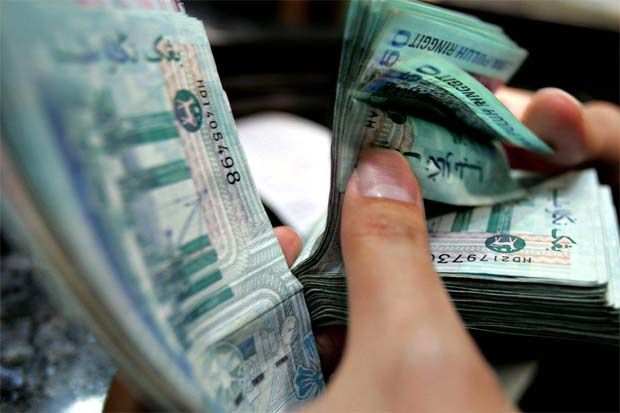When it comes down to wages, it is inevitable that there will be some employers who will find good reason to gripe about them. But as it turns out, some of these employees may actually have a point about penny-pinching bosses, as it turns out that Utusan Malaysia claims that Malaysian businesses are considered to be the stingiest employers in Southeast Asia.
Malaysian employers only contribute 25% of the nation’s gross domestic profit to employee salaries
According to the local Malay daily, Malaysian businesses were said to have only contributed 25% of the nation’s gross domestic profits (GDP) towards employee salaries. This pales in comparison to the 40% conferred by Singapore, 76% by the Philippines, and a whopping 84% by Indonesian employers. The figures take into account the population sizes of each nation respectively, with the island nation of Singapore standing at 5.6 million people, followed by Malaysia at 33 million, the Philippines at 109 million, and finally the Indonesian archipelago at 273 million people.
However, it is important to note that the source of the findings was not mentioned by the paper.

In speaking with the newspaper, President of Malaysia’s Trades Union Congress (MTUC) Datuk Abdul Halim Mansor was of the opinion that the measly number did not make any sense in light of the fact that on average, Malaysian employers have been offering salaries to employees that were far above the current stipulated RM1,200 national minimum wage.
This is taking into further account of the financial assistance that the Malaysian government has been channeling to businesses during the financial slump brought on by the pandemic, which included the likes of wage subsidies, tax reliefs, grants, and comprehensive stimulus packages.
“They (employers) have often mentioned that now wasn’t the appropriate time to raise the national minimum wage to RM1,500 due to economic difficulties and COVID-19. This excuse has been the standard, despite the fact that the government had implemented many different forms of assistance valued in the billions of Ringgit.” he said.
Minimum wage has yet to be increased, with the Malaysian Employers Federation voicing against the proposal
This is in reference to the Human Resources Minister’s earlier proposal to increase the national minimum wage from RM1,200 to RM1,500. The rate has yet to be finalised, and is currently awaiting approval from the Cabinet according to Free Malaysia Today. The proposal was met with resistance from the Malaysian Employers Federation, claiming that the increase in minimum wage standards could derail Malaysia’s economic recovery post-Covid, while also encouraging an outflowing of currency from the country as only foreign workers were most likely to benefit from the pay bump.

“Employers should empower the society with increased spending power, and not land them further in debt. When employees are being paid such low wages, this leads them to go further into debt, resulting in them spending more time at work to pay off their dues.”
“Comparatively, Malaysian employers only contribute 25% from the national gross domestic profit (GDP) figure to employee salaries, which makes us the stingiest country in Southeast Asia.” Mansor adds.
The needs of employees should be made a priority
In response to the Malaysian Employer’s Federation’s claim that the minimum wage increase would only benefit foreign workers, Mansor points out that locals are deterred from taking up jobs that only pay minimum wage given the measly amount, which consequently leads to employers hiring foreign labourers instead.
“Foreign workers benefit from the increased minimum wage, as employers only care about them, and not the salaries of local employees who have been retrenched. Why don’t local employees take up these vacancies?
Because of the low salaries being offered. If employers hire foreign workers, they could save even more as they are cheaper. They don’t even have to contribute to their employee provident fund (EPF), or pay them any overtime at all.” he counters.
Additionally, Mansor said that when the minimum wage system was first implemented in Malaysia in 2013, employees in West Malaysia were taking home RM900 minimum in salaries, while those living in East Malaysia were receiving a minimum amount of RM800. Despite the steady pace of economic growth that the nation has experienced since then, little has changed with regards to the minimum wages of employees.
“More companies were being established at the time, and Malaysia was seeing more foreign investment into the country.
As such, it is crucial that the government pay close attention towards the needs of the people. Malaysians have suffered so much, and have had to resort to making withdrawals from their EPF. Employers need to be more understanding.”
Calling workers the very backbone of the nation, Mansor claims that employers can also stand to benefit from providing their employees with an improved livelihood, describing the proposal for increased minimum wage as not a request, but more of a necessity.
For more news like this, follow us on Facebook by tapping here!








